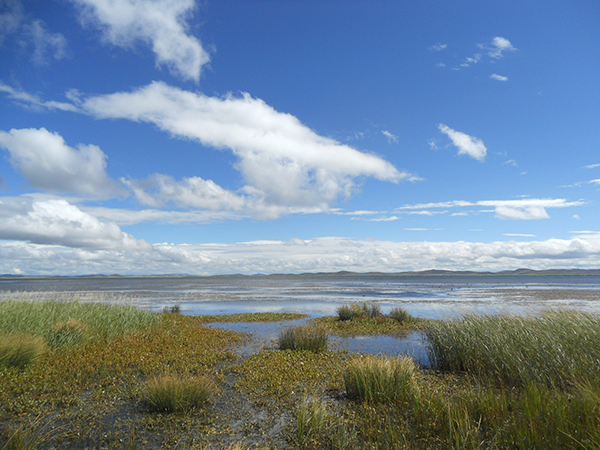Grassland with biting past now filled with flora, fauna


[Photo by HUANG LERAN/FOR CHINA DAILY]
Mention of the Long March reminds people of the odyssey of the Red Army soldiers climbing the snowy mountains and crossing the dangerous grasslands.
"The Red Army soldiers climbed eight snowy mountains and the Songpan Grasslands, all of which are in Aba," says Jiang Zuquan, an information officer with the Aba prefecture committee of the Communist Party of China, in the Aba Tibetan and Qiang autonomous prefecture in Sichuan.
Soon after passing the Luding Bridge in the Ganzi Tibetan autonomous prefecture, the Red Army soldiers climbed Jiajin, the first snowy mountain.
Jiajin, which is more than 4,000 meters above sea level, is covered with snow all year round and has very thin air. The mountain has capricious weather, and there were no people or roads on it. According to a book on the Long March published by the Party History Press, the weather could change from being cloudy to sunny, rainy to snowy, and raining hailstones to being windy.
Most of the Red Army soldiers had no experience navigating icy terrain and their footwear were cloth shoes or straw sandals.
It was June, but a blizzard swept through the heights and the soldiers' thin clothing was quickly soaked. The biting cold and great difficulty in breathing brought havoc.
From the foot to Jiajin's last peak, several hundred people passed away during the 40-kilometer hike. They sat down to take a rest but could never stand up again, Dong Biwu, a Long March veteran, told American journalist Agnes Smedley in Yan'an, Shaanxi province, in 1937.
Located at the junction of the Qinghai-Xizang Plateau and Sichuan Basin, the Songpan Grasslands, or Zoige Marsh, is the largest plateau wetland in the world.
Covering about 15,200 square kilometers, the grasslands spanning Songpan, Hongyuan and Zoige counties in the Aba prefecture are covered with flowers in August. But lying behind the beautiful scenery was peril.
In some sections of the grasslands, water was knee-deep. Sometimes, a soldier got stuck and disappeared in the mire before fellow soldiers tried to pull him out with a puttee.

































